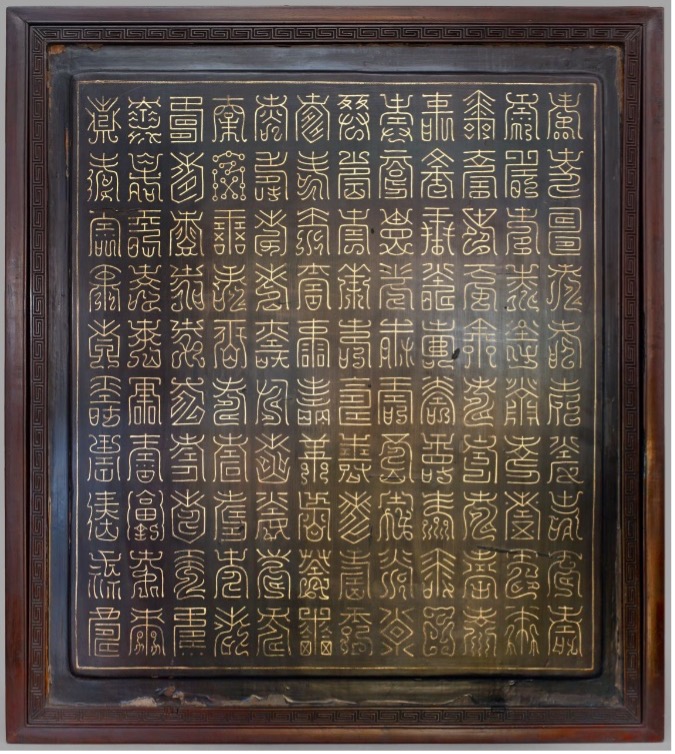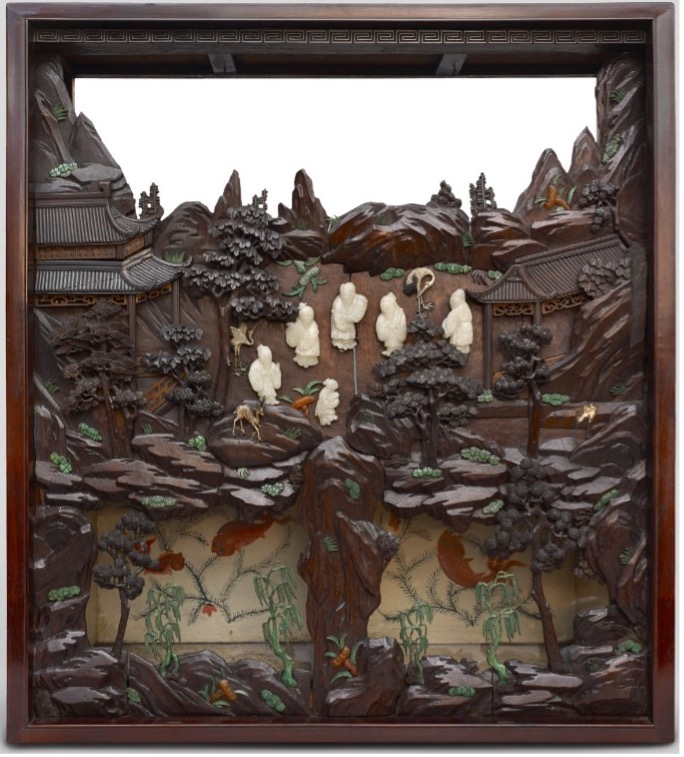Manchester Museum, part of The University of Manchester, has been undergoing its hello future development including a new Lee Kai Hung Chinese Culture Gallery, and will reopen to visitors on 18 February 2023. It seems like a very long time ago that this exciting new project was first announced but we are pleased to report that the Lee Kai Hung Chinese Culture Gallery has entered the busiest stage of its development schedule leading up to its reopening.
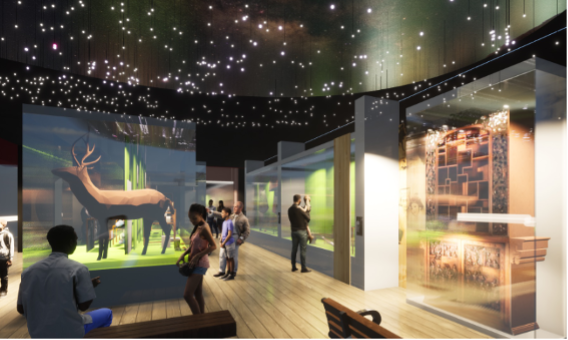
The gallery will highlight personal stories of migration, friendships and collaboration to inspire empathy and build understanding. Developed in partnership with the University of Manchester’s Manchester China Institute, it will draw on historical and contemporary links between the UK and China. Showcasing rarely and never-displayed collections from cultural partners across the city, visitors will making meaningful connections through personal stories and objects. We are pleased to be working with designers, Imagemakers, who have considerable experience of working on high profile exhibition projects in China.
The earlier phase of research was supported by a Fellowship generously supported by the Headley Trust with Art Fund. This uncovered several human-interest stories behind some of the objects in the collections. Empathy, the ability to stand in the shoes of another person or see life through the eyes of someone else, is crucial if we are to achieve the gallery’s aim of building better understanding between different cultures.
The ‘Movement and Migration’ section in the displays celebrates some of these lived experiences. For example, Manchester missionary, Alfred Bosshardt (1897-1993) was a prisoner of a Communist army in the early stages of the Long March in China during the mid-1930s. Despite the difficult circumstances, Alfred and the Chinese general Xiao Ke respected one another, and Alfred was released after 18 months. Fifty years later he was living quietly in retirement in Manchester when Xiao Ke contacted him. They corresponded and exchanged gifts. If these two men divided by ideology, nationality and religion could regard one another as friends, doesn’t that send a very powerful message to us today in this time of rising geopolitical tensions?
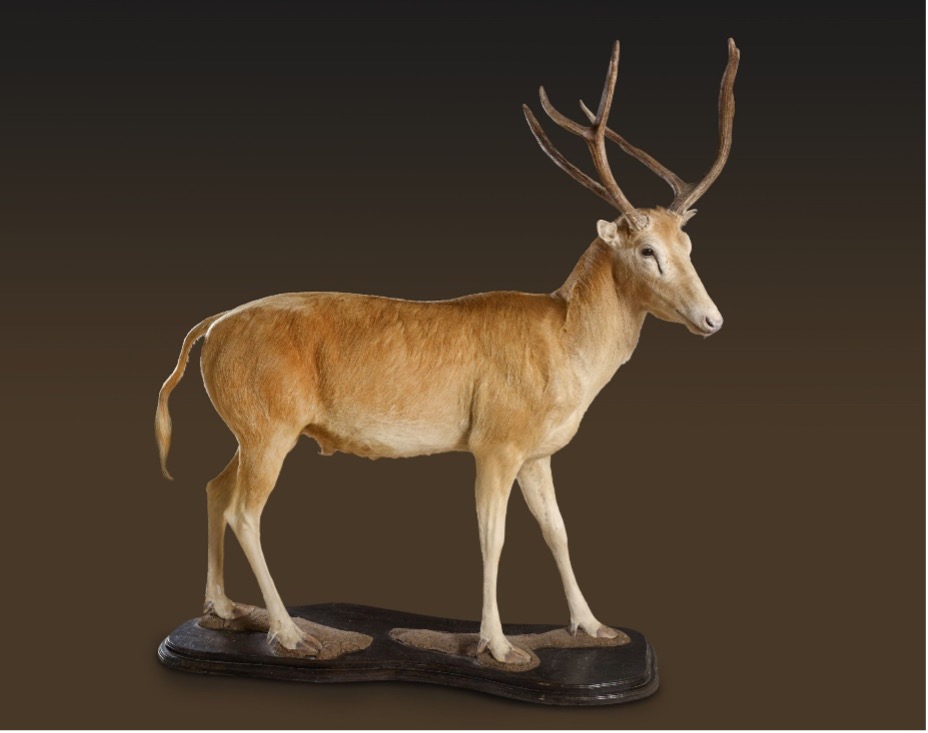
The ‘Our Shared Environment’ section in the displays explores China’s biodiversity and environmental themes. There are several thousand plant specimens from China and illustrations from the Museum’s Herbarium. China is rightly celebrated as the ‘Mother of Gardens’ and many garden plants often assumed to be traditional British varieties originated in China, including peonies. We also highlight the dramatic transformation of China’s Loess Plateau, a region the size of the Netherlands, from desert to green oasis, as a result of landscaping the valleys to control water run-off and changing farming practise. This has also reduced the amount of silt entering major rivers and helped to reduce flooding. We also showcase China’s ‘Sponge Cities’ initiative which is designed to absorb and slowly release rainwater in major cities such as Wuhan. In 2018, a delegation from Manchester visited Wuhan to learn from the Chinese experience and since then a small trial ‘Sponge Cities’ project has been launched at West Gorton in Manchester and the results are very promising.
In ‘Caring and Healing’ we look at shared interest in healthy ageing in the UK and China. Chinese communities and newcomers to the city bring with them research expertise and philosophies of healthcare that complement western medicine, benefiting all the city’s communities. As a city of active ageing Manchester can also learn from Chinese approach to longevity. Chinese cultural traditions are influenced by the Confucian value of harmony in family and society and the ideal of respect for the elderly. This is interwoven in society through Traditional Chinese Medicine and emphasizes gentle, regular, daily movement to improve mood and physical well-being.
The ‘Identity and Belonging’ section explores the contribution of Chinese communities to the rich ethnic and cultural diversity of the city of Manchester. We celebrate heart-warming stories such as the help given to Chinese newcomers to Manchester by Rosie and Doug Sadler. It is easy to forget how big a challenge it is moving to a busy city in a foreign country. Rosie and Douglas offered a warm welcome and help settling in. The couple had worked as missionaries with Chinese communities in Malaysia. Years later, they started helping Chinese people in the city. They found them accommodation and furniture, ran English classes, and organised excursions. Chinese people showed their appreciation for the Sadler’s kindness by bringing them gifts, some of which we will show in the new displays.
The gallery also grapples with difficult and sometimes traumatic subjects, offering insights and perspectives through objects and storytelling. For example, it includes the story of a Chinese waiter who gave his botany collection to Manchester Museum. He was sadly the victim of anti-social behaviour, driven by racism, when he set up a takeaway in Rochdale during the 1980s.
We also highlight the complexities of relationships. The gallery highlights the family history of American researcher Polly Shih Brandmeyer. Her great, great grandmother, Adela came from London and married a Chinese student Qian. She went to join her husband in Chengdu where Qian had a post in local government. The couple had four daughters. When Adela died, the two youngest were adopted by Captain Cornell Plant, the man who pioneered steamships on the Upper Yangtze. After the Captain and Mrs Plant passed away en route to Britain, the little girls were brought up by a missionary in China, not knowing their family story. Polly has very generously allowed the museum to share it.
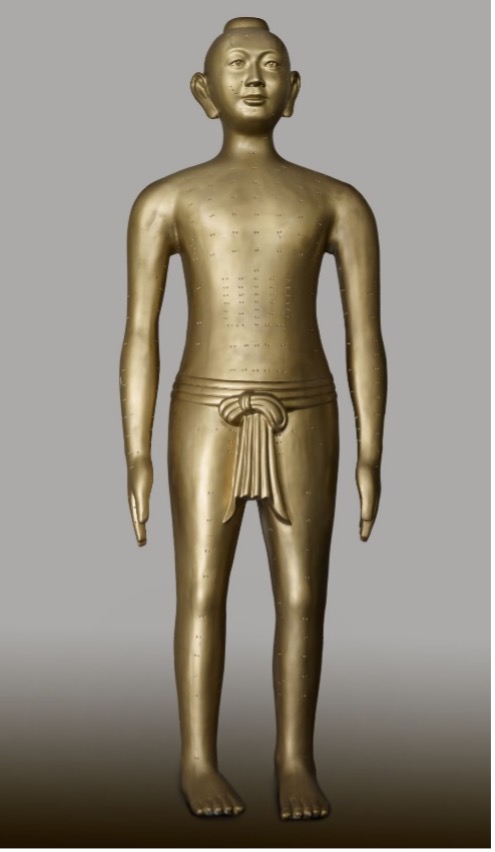
The museum has recently taken delivery of a beautiful Milu deer taxidermy specimen, which complements the museum’s zoology collections from China, and a life-size acupuncture model from a TCM (Traditional Chinese Medicine) practise in Didsbury, Manchester. We are also very excited to have the support of John Rylands Library which has a very important Chinese collection. We will display a scroll depicting the emperor Kangxi’s birthday procession through the streets of Beijing in the early 18th century (Qing dynasty) from their collection. We have also completed a study of Manchester’s Old Town Hall collection of diplomatic gifts from visiting dignitaries from all over the world, including China. We were delighted to discover a football signed by young Chinese players who visited the Northwest when their careers were just beginning. Several of them are now established professional players in the big leagues in China.
The work of modern artists also features heavily in the new gallery. We have commissioned Dr Yan Wang Preston from University of Huddersfield to take photographs of members of the Chinese communities in Manchester. This will enable us to bring the stories we tell in the gallery very much up to date, reflecting people’s lived experiences in the city. This builds on last year’s very successful Touching from a Distance project involving artists Daisy Chen and Jan Bautista who produced complementary artworks celebrating the emergence from lockdown of Manchester and our Chinese twin city Wuhan. We will also show an imaginative bamboo installation by artist Gordon Cheung alongside bamboo loan objects, including a baby walker, a heater, a gift box and a travel case from the Chen Lyusheng Museum cluster in China.
We have collaborated with Chinese communities in Manchester throughout the development of the gallery and have had wonderful support from Manchester Chinese Association and Chinese students at the University of Manchester. We are now starting to plan an ambitious and impressive programme of public events for after the opening.
We very much hope that SACU members will visit the museum and see the Lee Kai Hung Chinese Culture Gallery when it reopens just after the Chinese Lantern Festival in February 2023.
Authors: Bryan Sitch, Deputy Head of Collections and Lead Curator of the Lee Kai Hung Chinese Culture Gallery, and Dr Fang Zong, Lee Kai Hung Chinese Culture Gallery Project Assistant, Manchester Museum, University of Manchester.
November 2022
